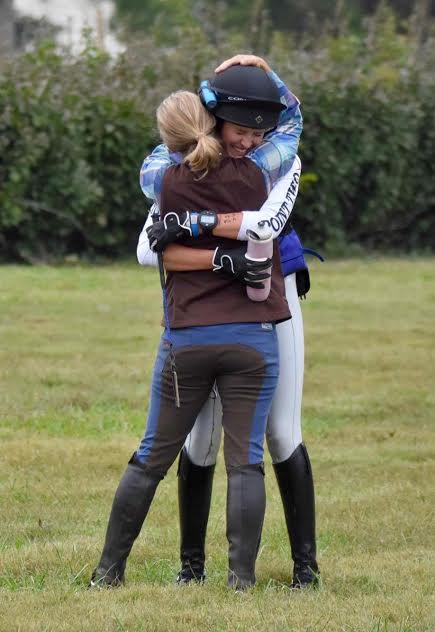A few weeks ago, I presented some of my research at the Society for Theriogenology’s annual conference in Savannah, GA.
I was speaking on a topic I am both super passionate about as well as quite knowledgeable-the inflammatory response to bacterial infections during pregnancy in the horse. It is the reason I went to graduate school in the first place. It combines my three passions: immunology, reproduction, and horses. And I knew I was prepared.
I was in the competitive category, having been selected as one of the top abstracts of the conference. And I got on that stage and started my talk. I knew that I knew my data. I had done the entire experiment myself, from the lab work to the statistics, and I could answer any question.
But halfway through my presentation, I heard myself slip. I had stammered over a word choice. Two slides later, and I forgot to explain my x and y axis.
But, I rallied. I regrouped. I kept going. I answered the tough questions received and walked off the stage to a fist pump from my fellow lab mate and a hug from my intern.
But the minute that the applause ended, I started analyzing.
It was good, but had it been great? It was well done, but had it been perfect?
Instead of focusing on the 99.9% that had gone well, I felt stuck. I shook my head at myself for having tripped over that word. I smacked my leg at realizing that I could have described that graph more coherently.
And instead of being thrilled at a great presentation on a massive stage, I felt frustrated.
I refused to hear the congratulations. I refused to let their compliments sink in. And instead, I focused on the negative.
Less than a day later, I found out that I won the entire competition.

I went up on the stage, accepted the applause and the check that came with it, smiled for approximately thirteen seconds, and then immediately sank into a funk.
Yes, I had won. But I hadn’t been perfect. I didn’t feel it was deserved. It could have been better. I could have been better.
There is something to be said for a personality like mine. One that fixates on the minute negative instead of celebrating the majority of good. It carries from work, to sport. From hobby to my occupation.
And I feel it trickle towards everything from my friendships to my riding.
I can leave a stadium round where every single rail stayed up and still be upset that I chipped to the 8th.
I can walk off of double clean XC where my horse was happy and healthy and still fixate on his hesitation to the water.

And I can sit and pause over videos, acknowledging a tail swish or an ear pin more than a fluid lateral movement or cadenced gait.
We as equestrians are asked to pay attention to details. It’s engrained in us from such a young age. Stalls are picked immaculately. White breeches stay starched and clean. Bandages without wrinkles and tails without sawdust.
We are scored by the movement or the jump so that we can break down the good and the bad. And we use these scores to improve upon what we err’d.
And yet, at times, it’s not healthy.
At times, we need to find happiness in the overall picture.

To look at a ride as a cohesive unit, instead of 20 different transitions, 3 different gaits, and 2 halts.
To look at a XC course as a round over 6 minutes instead of 20 obstacles and two lines.
And to look at our time spent with our horses as years in total and not one bad ride, one injured limb, or one bad show.
The fixation on the minutiae needs replaced with the overwhelming feeling of accomplishing a goal; no matter how small it is.
Relishing in the walk to that podium. Feeling praise in that fist bump. And holding on for an extra second or two to that hug from a friend.

Only then can we truly appreciate the journey that is life. And especially life in this sport.
I know I gave a damn good talk. I know I had a great XC school. I know I improved my dressage test.
And I know I am going to try to work on fixating on the joy of the bigger picture. Are you?

Recent Comments